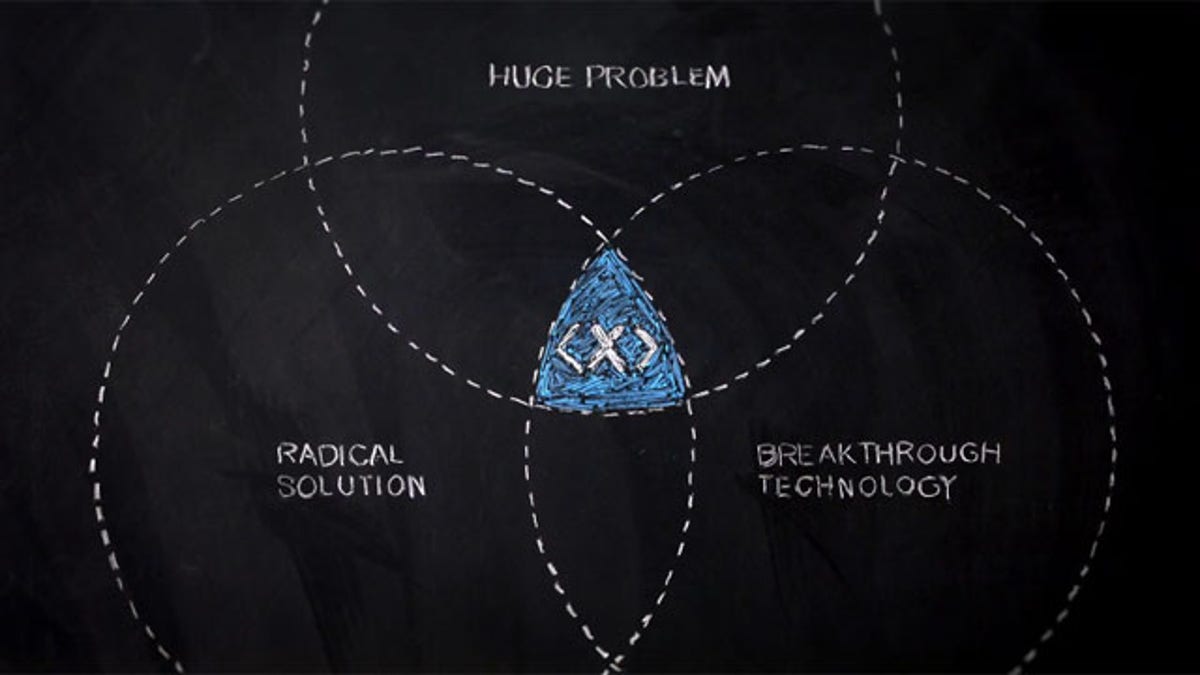
Can Google's "Solve fo X" project save the world? (Google/YouTube)
Google unveiled a new project dedicated to tackling some of the world's biggest problems early Monday morning.
The company launched a site, called "Solve for X," a TED-like think tank that will encourage problem solving and teamwork to come up with "radical" ideas for big picture problems.
"Solve for X is a place where the curious can go to hear and discuss radical technology ideas for solving global problems," reads the Solve for X website.
“Radical in the sense that the solutions could help billions of people. Radical in the sense that the audaciousness of the proposals makes them sound like science fiction. And radical in the sense that there is some real technology breakthrough on the horizon to give us all hope that these ideas could really be brought to life.”
There is a telling focus on innovation for the sake of innovation. The project is looking for "moonshot" ideas and thinking, and the fruits of some of these labors are already on the horizon, BGR reports.
One of Google chief scientists, Richard DeVaul, revealed via his Google+ page that an invite-only Solve for X conference over the weekend had discussed ways of "transforming education" and creating "5x improvements in agriculture through better decision support, synthetic biology, and carbon-negative biofuels.”
DeVaul also announced that the Solve for X YouTube page and website will be updated to include video’s of the presentations for all to see.
Google did not respond to FoxNews.com requests for comment.
The project is believed to be linked to Google X, the company's top-secret lab dedicated to "shoot-for-the-stars" type ideas, such as driverless cars, web-connected appliances, and even space elevators.
The labs are reportedly run "as mysteriously as the C.I.A.," according to unnamed sources familiar with the project, and housed in two facilities -- one in California at the company's headquarters and one in an undisclosed location elsewhere in the country.
“They’re pretty far out in front right now,” Rodney Brooks, a professor emeritus at M.I.T.’s computer science and artificial intelligence lab and founder of Heartland Robotics, told the Times. “But Google’s not an ordinary company, so almost nothing applies.”
